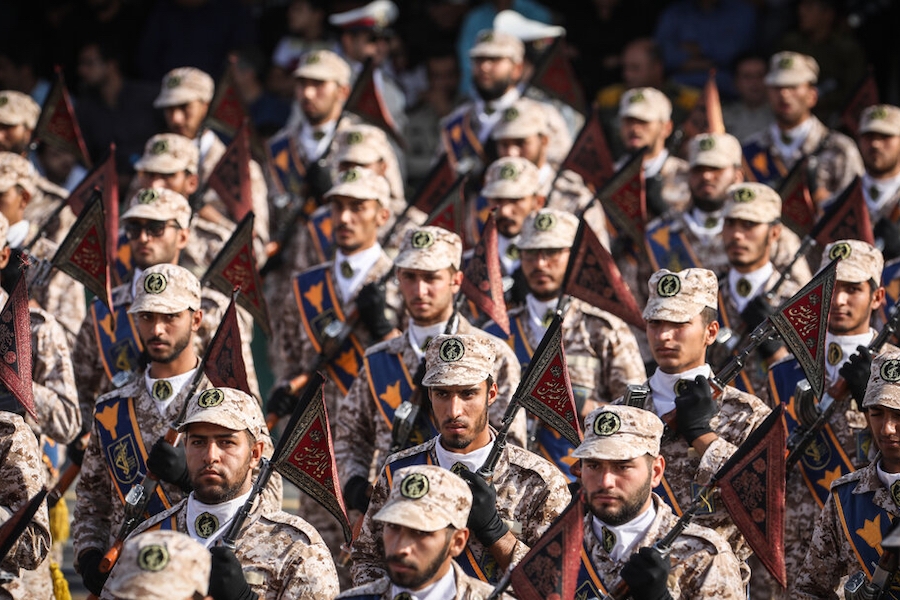
Why the Iran Nuclear Talks are Set up for Failure
As discussions surrounding the Iran nuclear deal resume, main partners in the talks continue to overlook the importance of involving Gulf states in the negotiations.
In July 2015, the Iran deal was struck. For all the complexity of the deal, it involved a quite simple quid-pro-quo: Iran would limit its nuclear activity, while the world would lift a slew of economic sanctions—some dating back to the 1980s. The Trump administration sank the deal in May 2018, and since January 2021, the Biden administration has been on a futile quest to resurrect it.
Talks are currently mothballed. Under pressure from Congress and U.S. allies in the region, the Biden administration has not granted Iran what is speculated to be the ‘last’ concession needed to reach a deal: lifting sanctions on the Iranian Revolutionary Guard Corps (IRGC), the praetorian guard responsible for Iran’s regional proxy activity. On the one hand, delisting the IRGC would have little effect in curbing the guard’s activities in the region. On the other, regional allies would see the measure as a major snub.
Beyond non-proliferation, it is unclear how a new deal plays into the United States’ regional strategy. Iran, which continues to reject American offers of direct talks, also refuses to engage with the United States on issues that are more important to its allies: Iran’s ballistic missile program and funding of its proxies. In 2015, the deal came with some prospect of a follow-up deal, or “more for more.” Today, that prospect is not possible: Iran’s current hardline government has clearly said as much.
Yet this opens up a broader question, one that the Biden administration finally seems to be asking: What would a new deal mean for Iran’s neighbors? As it stands, the deal does not satisfy concerns put forth by the Gulf states.
Iran’s western neighbors
Iran’s regional strategy has come at the expense of the region’s security. Iran has selected its proxies based on sectarian divides: the Houthis and Hezbollah in Yemen, Kata’ib Hezbollah and Asa’ib Ahl al-Haq in Iraq. The exceptions to the rule are Hamas and Palestinian Islamic Jihad in Gaza, which share with Iran the goal of ultimately destroying the state of Israel. Iran’s backing of these groups is well-documented, and the sectarian vision underlying its foreign policy has been clearly articulated. In this respect, proxy warfare is like nuclear proliferation in that its object is to destabilise the regional status quo and weaken the states that seek to encourage stability.
Beyond a shared concern with Iran’s nuclear program, the momentum behind the historic Abraham Accords was mostly generated by shared opposition to Iran’s strategy of destabilization. Fears of American disengagement from the region—Syria, Iraq, and most infamously, Afghanistan—is bringing American allies together, echoing the creation of the Gulf Cooperation Council (GCC) in 1981. The GCC was formed to protect the Gulf states and their interests in the wake of Iran’s Islamic Revolution. Shared disillusionment with the Carter administration played no small role in enabling its creation.
Today, a less formal multilateral system is burgeoning, particularly between Israel and the Gulf states. Dozens of new agreements have been reached, covering intelligence cooperation, research and development, and trade. American convening power could help turn this burgeoning network into an alliance serving the object of regional stability. The purpose of these agreements is, in the first place, to defeat Iran’s attempts to revise the regional status quo: an ends to which nuclear proliferation and proxy warfare are both mere means.
America’s allies in the Middle East are more preoccupied with the immediate prospect of Iranian proxy activity than they are with a hypothetical Iranian nuclear weapon. While the consequences of an Iranian nuclear weapon would be seismic, Iran’s unwieldy arsenal of proxies is geared to the same ends: strong-arming the region’s stability-seeking states, including America, into submission. To face this threat, American convening power is a much better choice than DIY multilateral defense. Despite well-publicized acrimony between the United States and Saudi Arabia, the return of American leadership in the region would be welcomed by all. But beyond moral and even material support, the best demonstration of that leadership would be bringing the Gulf states into talks with Iran.
The exclusion of regional states, and even regional organisations like the Arab League and the Gulf Cooperation Council is a reasonable cause for resentment. Simply because those regional actors believe that the negotiations exclude major security and trade concerns. But it is also a strategic miscalculation. Bringing the Gulf states into talks with Iran would serve the Biden team’s own goals—greater global credibility, and the prospect of a truly durable deal. Current attempts for direct Saudi Arabia-Iran talks have been held through lower-level security and intelligence officials, however the prospects of such talks are dependent upon complicated progress over Yemen. Moreover, an opportunity of this sort should be exploited by the U.S. by entering as a mediator between two regional key players.
The current gridlock in the talks makes it hard to work Gulf states into the fold, while matters more pressing—the war in Ukraine and runaway inflation—have taken center stage. Policymakers should consider the benefits of including Gulf states in the talks, in return for assurances of a more stable energy market, for example.
The outlook of the revived Iran nuclear talks looks bleak. The prospects of resuming talks for the purpose of finalizing the return to the JCPOA deal is far from attainable given unrealistic demands and due to far more pressing global issues. The inclusion of Gulf states in the negotiations would result in a safer, more secure region.

